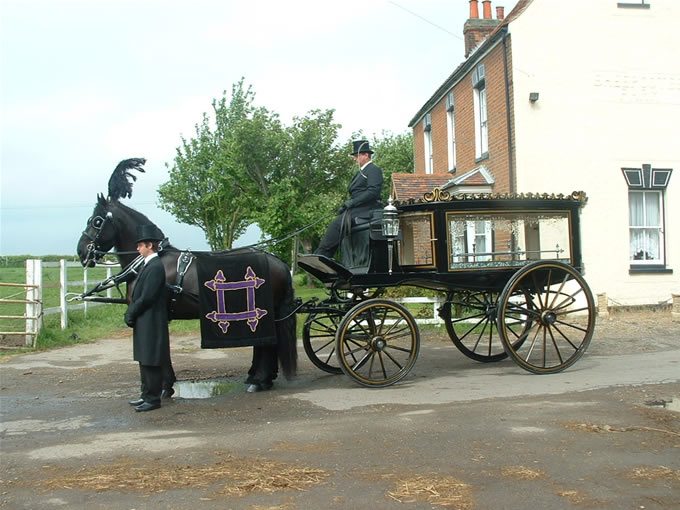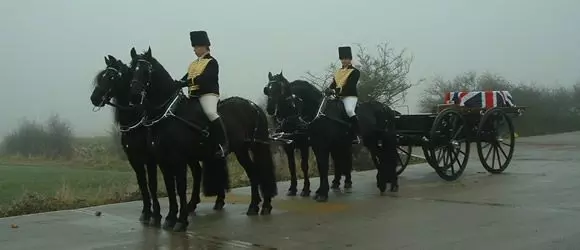This article looks at the most important things to consider when arranging a funeral. Find out more about the steps involved when planning a funeral.
How funerals are arranged
The majority of funerals are arranged by using a funeral director. You should find a director that belongs to a professional funeral directors association, such as the National Association of Funeral Directors (also known as NAFD) or the Society of Allied and Independent Funeral Directors (also known as SAIF).
You should go with a director with connections to one of these associations because they have strict codes of practice, as well as complaint procedures, that will come in handy when going through the process of arranging a funeral.
There are also some local authorities that run their own funeral services through an arrangement that they have with a local company of funeral directors.
What are the steps to planning a funeral?
If you are going through the process of planning a funeral, then it will be a huge help to yourself and the rest of your close ones if you can answer these questions first before any preparations begin:
Have any funeral instructions been included in the will?
Are there any savings, life insurance, or funeral cover set up in order to pay for the funeral?
If there is not, then how are you planning to pay for the funeral?
It is common for people to leave instructions for their funeral within their will or in a funeral plan. In other cases, the deceased may have just discussed it with someone close to them who can then relay the information.
If the deceased did happen to leave funeral instructions behind, but they are either too expensive to be plausible or just impractical, then you do not need to follow the instructions by the letter. Just focus on doing whatever you can with the budget that you can afford.
Who can help?
We would recommend speaking to family members and close friends of the deceased when planning a funeral. Though some of those people will not be able to help, others may be able to provide additional details or want to assist and be involved with the planning.
This gives you an opportunity to delegate all the planning to different people, so the entire workload and stress aren't on just one person's shoulders. Having this support is absolutely vital to ensuring that you do not get overwhelmed.
Another important piece of help that many people forget is that you do not have to wait until your loved one has died before you can start the planning of their funeral.
Having a talk about the funeral can even be comforting to some people who know they are coming to the end of their life, as they know that plans are being put in place so their loved ones can have peace of mind.

Choosing a funeral director
When you are organising a funeral, one of the first decisions that you will need to make is whether or not you will need a funeral director to assist you. The planning of a funeral is usually a very difficult time emotionally, so many people make the decision to leave the majority of the arrangements to a funeral director.
The director will make sure that the deceased, the funeral proceedings, and the organisation of any wakes are all taken care of. The funeral director is also available to give you any support and general guidance.
In some cases, if your loved one already had a funeral plan, funeral cover, or a will, then they may have already picked out a funeral director.
If this decision has not been made, then perhaps ask around locally for any recommendations. There is always the option of consulting the National Association of Funeral Directors too.
There is no obligation to have a funeral director plan every aspect of the funeral, but they have an important responsibility to ensure that the person who has died is fully taken care of and is treated with absolute dignity and respect.
Sometimes it can be a more cost-effective option to have some parts of the funeral arranged by yourself, but in a hard situation when coping with grief, a funeral director is a great person to lean on for support and assistance.
How a funeral director can help
Collecting and caring for the person who has died
Total planning and overseeing of the funeral proceedings
Support and guidance with all the funeral choices that are available for you
The coordination and the organisation of any other parties that will be involved with the funeral
Choose burial or cremation
The most common form of funerals are burials, cremations, and what are known as direct cremations.
The prices will vary quite largely between the different options. A burial is the most expensive option for a funeral, and the most affordable is a direct cremation.
If your loved one has asked for a certain form of service within their will or funeral plan, but you cannot afford what they want, then you can simply choose a different option that is better suited to your budget.

Choose a coffin
There are many different types of coffins to pick from. Most people choose to look at the options that are available online before they come to a final decision.
Coffins are commonly other made from metal, chipboard, solid wood, or another type of biodegradable material. You can even purchase coffins that are personalised with writing or images of your choice.
To ensure that you purchase the right size of a coffin, you will need to know the height and weight of the deceased.
If you are using a funeral director through this whole process, they will be able to show you the range of coffins that they have on offer.
However, there is no obligation to purchase a coffin through them, and you can still get one elsewhere. Independent coffin companies tend to sell cheaper coffins, allowing you to save some money that can be used for something else at the funeral.
Work out how much the funeral will cost.
Everyone knows how expensive funerals can grow to be. In the UK, the average funeral costs around £4,056. This is a lot of money that a lot of people do not have access to.
This price does not even include a lot of the optional extras that may seem crucial to a funeral, such as transport, flowers, and a memorial.
The basic costs of a funeral should cover the following:
Funeral director fees
Doctor fees
Officiate or clergy fees
The cost of the coffin
It is up to you to decide which ones from this list you think are essential and which costs you feel are unnecessary.
One example of this would be paying a funeral director to assist you with the funeral. This cost can be saved by organising the funeral yourself.
Who pays for a funeral?
In situations where the person who has died has taken out a funeral plan or some variety of funeral cover, the funeral may be able to be paid by their funeral policy.
If the deceased also had a life insurance policy, then this can also be helpful in putting money towards the funeral costs. In other cases, they may have held onto some money in their estate to cover the costs of the funeral.
If so, then the executor of the estate will be able to take care of paying the bill that comes with the funeral.
It is also not uncommon for a friend or a relative to pay for all the costs of the funeral. When this happens, the relative or friend might be able to get the cost of the funeral back from the deceased's estate if there is enough money to cover the costs.
Funeral calculators are available online in order to give you an idea of what a basic funeral may cost, along with any extras that you deem necessary.
Below is a list of some ideas that can help to cut the costs of a funeral

How to cut funeral costs
Make the choice of going with a direct cremation. This choice alone can save thousands of pounds.
Try to find a cheap coffin. There are great-looking coffins available that are constructed out of cardboard. The cost of these starts at around £150 and they are much better for the environment.
Do not hire a limousine for the funeral. Allow the guests to make their own way to the event if possible.
If you can, then have the wake at your home. This means you will not have to pay for venue hire.
Make any food for the funeral yourself.
Embalming is traditional, but it is not necessary if you are looking for a way to save money.
Choose the type of funeral service.
There are many different types of funeral services available to choose from. There is the traditional option of a church ceremony, a cremation, or even having the ceremony in a woodland area.
There is truly an option for everyone. Over the years, alternative funerals have become more and more popular in the UK.
If your loved one has asked for a specific kind of service, then it is recommended that you go with this choice. If they have not made a choice, then you should choose whichever option you feel is the most appropriate. Below are some examples:
A religious ceremony
Cremation
Woodland and green funerals
Civic funerals
Humanist funerals
Burial at sea
If you are planning a funeral in Essex or the surrounding areas, we provide horse drawn carriages for just such occasions.
We offer horse drawn funeral carriage in Essex and London. Visit our site to book your funeral transport hire.

